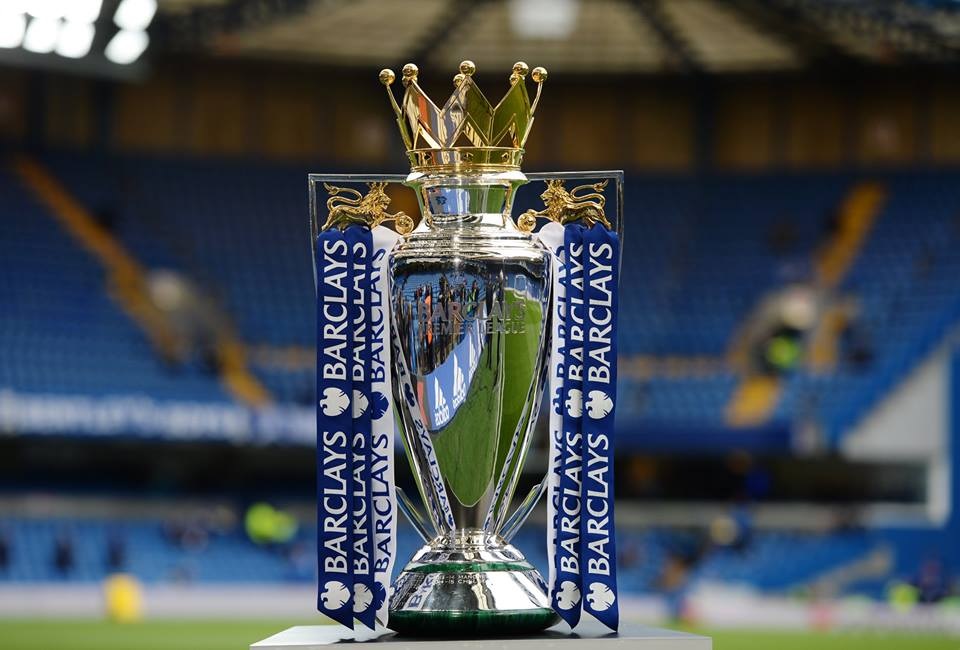English Premier League | A viable business or a bubble waiting to burst?

With Leicester City winning the League, the executives at the Premier League offices celebrated with great enthusiasm. This is not because they are Leicester Fans, but due to the fact that the League as a whole now has a new dimension to market itself. When Premier League signed its new Television rights deal, a lot of heads were turned in what could be considered the largest sports television rights deal in the history of football. At a staggering 5.14 billion pounds, the Premier League will earn an annual income of 1.7 billion annually for three years, starting 2016. This would make the Premier League the richest Football League in the world.
The staggering numbers are not only for the Premier League as a whole, but the teams within the Premier league as well. The most recent Deloitte Money League 2016 report brings to light that nine of the twenty ranked clubs are from the Premier League. Amassing a staggering 2.983 billion in the 2014-15 season, it comes as a surprise that clubs which narrowly escaped relegation soar at heights very close to Champions League and domestic league contenders. What is it that the Premier League possesses which enables them to rake in so much money?
Where do clubs get their money?

Source: Deloitte Annual Review of Football Finance
There are predominantly three streams of revenue for any football club: TV broadcasting revenues, merchandising revenue and ticketing revenues. Of the three, TV broadcasting revenues are by far the largest source of revenue, with most clubs earning up to 50 percent of their total income from this source. Premier League in this aspect commands a gigantic fee from broadcasters for their product, hence allowing the league and in turn the teams to earn a lot of money.

Just the Broadcasting revenues of the English first division is enough to match the total revenues of the other big leagues. When a league loses the faith of the audience, the ones watching the games on television are the ones who will go away first. Audience who attend and purchase merchandise are somewhat more of a fanatic type and will be the last ones to let go. Hence, this fickleness in TV audience makes broadcasting revenue a source although great very unstable.
With more technical and statistically stronger teams in other leagues, mainly La Liga, there is a belief that the Spanish first division will soon overtake the Premier League, and that the Premier League, often called a marketing gimmick, will soon collapse. However, the fact yet remains that the Premier League is yet considered the most famous mainly due to the following reasons.
More to offer as a Product
One of the biggest positives of the Premier League is that the season does not have just a small handful of games to watch. The Premier League does a better job of marketing itself by offering a little more than two games a year(Classicos). With the teams on a more level playing field, the competition between a team that expects to be relegated and another team that’s fighting for the title is sometimes as intense as the title race itself.
The title race, the European spots and the relegation battle hook the interests of a varied audience watching the Premier League. A local derby between two of the smaller teams in the PL seems to gather a substantial audience.
All for One
All European Leagues follow a capitalistic approach to the football economy i.e. the clubs are a part of a league, but the fortunes and successes majorly depend on the clubs’ shoulders. On the contrary, Major League Soccer, NBA and the other American sport leagues function in a more socialistic way, where the league takes care of the teams, and success to teams inadvertently follows success to the league over all. The Premier League on the other hand has found a middle ground. As capitalistic as it can be, the distribution of broadcasting rights in the Premier League is done in a more egalitarian way.
The Spanishand Italian leagues have a distribution policy where there is great disparity between the highest earners and the lowest earners in the league. In the Italian league for example, a lot of factors go into the distribution of the TV rights which is pre decided at the beginning of the season based on historical performance and Supporter Index. On the other hand, in the Premier league, the variable portion of the TV rights are dependent on current season’s performance, and a factor known as facility fee which refers to the number of times the team appears on television. This distribution method hence causes only a variance of close to £20 million between the top and bottom teams as compared to £60 Million in the Italian league. Hence, even the poorest performing English club has enough of an earning to keep the squad competitive.
The English Language
A common Language has always been a source bonding among people. Over the years the propagation of English language has brought the existence of one common language around the word. Corporates and events around the world when catering to a global market have always used English as a medium of communication. With websites, news and information running to billions of webpages readily available in English, the Premier League has the upper hand in first reaching out to the countries that officially speak English, and then other countries where there is some presence of English knowledge. Although this is a factor that might not be too important from a business stand point, it is one that cannot be omitted.
As much as spectators love to hear a South American commentator lament his extremely outstretched “goaaal”, the wit and charm that comes along with an English commentator’s words are one of a kind.
A Comfortable Timing
One other positive that works very well for the Premier League is that the games are set and played at a comfortable time of the day that suits the large Asian market. An ardent follower of the La Liga from the Asian shores will tell you about the late nights he’d have spent on weekends hoping to watch his favourite team play. With games usually starting as early as 12:30 in the afternoon in England and the latest game being played at 6 pm, the Premier League comes to the Eastern audience at a time when families are ready for dinner or just an hour or two before midnight. This enables ardent fans to watch their games without having to sacrifice sleep.
The BundesLiga has recognised this factor and also play their games at 3 in the afternoon in order to cater to the Asian Audience. However, La Liga and Ligue 1 continue to play their games late in the evening which causes the number of viewers to drop in Asia and reducing their bargaining power with Media companies.
Performance in Europe
One fact that people have been led to believe is that Premier League sides struggle in European Competition. However, this is only partially true when considering the last ten years of Champions League football (excluding the current year). There have been 4 winners from Spain and 2 from the Premier League. Nevertheless, considering runners up and the final 4, Spanish teams have had 1 runner up finiah whereas English sides have had 5 in the last ten years. Clearly the English sides, although second, are very close to the Spanish sides in the toughest club football competition.

When it comes to the Europa League though, it’s a different story. English clubs are left in the dirt by Spanish teams and are even closely beaten by Portuguese sides. Similarly, when we take the impact of local leagues on the national sides, England’s performances have been nothing short of a joke, be it in the Euros or the World Cup. Even in the Premier League, the last ten top scorers have been non-Englishmen. It is quite evident that much of the entertainment factor the Premier League derives is from abroad, and that there is only a limited supply of local talent that is fostered from the League. With the current batch of players such as Harry Kane, Jamie Vardy and Deli Alli, this pattern may be about to change.
Attracting Talent
Although the Premier League has been marketed as the toughest league in Europe and boasts of a host of talents, the fact remains that players in the Premier League look at Barcelona and Real Madrid as a step up from the Premier League. Every player’s dream in the Premier League starts of as with ambitions to play for a big side such as Manchester United or Arsenal, but the dream when achieved, changes to going on to play for Real Madrid or Barcelona. The likes of Toni Kroos, Neymar and Arturo Vidal have all been at one time or the other, linked to an English Club. They however have chosen to play in a league where they believe the football is more fulfilling.
With Suarez and Bale’s moves to Barcelona and Real Madrid respectively, it is evident that players in the Premier League look at the La Liga as a step forward. There must be an aspect that’s more than just wages that attract players to other leagues and keep them away.
With recent talks of Hazard, Deli Alli and Kane being linked to clubs away from the Premier League, it is evident that despite the drama, the PL stars do not look at the League as the pinnacle of their football career and this is a threat to Premier League as their inability to retain or attract stars will lead to it soon being beaten by other leagues.
Will the bubble burst?
Recently football purists have gone on to say that the Premier League’s quality of football is drab and old school, whereas the Bundesliga and La Liga boast of quick paced attacking football or a huge host of super stars. However, neither of the leagues come up to the standards of the Premier League in terms of the entertainment factor offered. After all the major reason why people watch football is for sheer entertainment.
Premier League is in this regards an excellent business and attracts all, fromthe rich and famous to the poorest of the poor, as long as there is a deep seeded interest in football. With this large incoming revenue, the Premier League sides will be able to fund programmes and players that sort out their team’s performance in general, as well as in European competitions. There is no doubt the League will be an unstoppable force soon, even greater than it is today, if these funds are to be used for more than just exorbitant wage bills. The face of football is about to change.

Comments
Sign up or log in to your account to leave comments and reactions
0 Comments